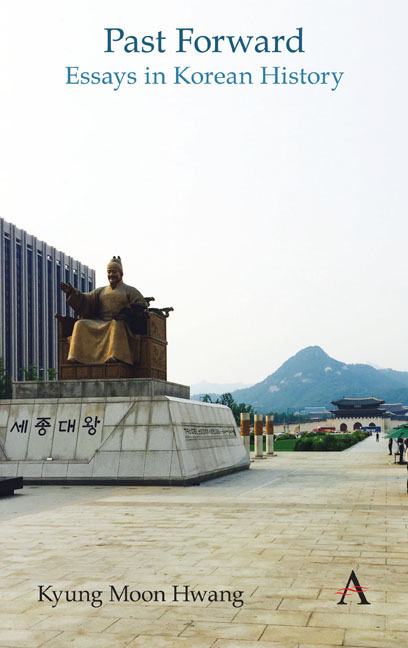Book contents
- Frontmatter
- Contents
- List of Figures
- Foreword
- Chronologies of Korean History
- Themes
- Acknowledgments
- Note on Romanization and Spelling
- Part I Circulating History
- Part II Durable Traditions
- Part III Ancient Remains
- Part IV Dynastic Depths
- Part V Modern Origins
- Part VI Challenges of Nationhood
- Part VII History Makers
- Part VIII External Presences
- Part IX Trials of Modernization
- Part X Gripped by the Past
- 70 Natural Disasters and the False Wisdom of the Past
- 71 Royal Dangers
- 72 North Korea's Alternative History
- 73 Origins of Korea's Political Corruption
- 74 Anti-Communism's Powerful Hold
- 75 Fraudulent Captains of the Sewol Ferry Disaster
- 76 Overcoming Past Hierarchies
- 77 Gripped by the Authoritarian Mindset
- 78 Ways of Living History
- Index
70 - Natural Disasters and the False Wisdom of the Past
from Part X - Gripped by the Past
- Frontmatter
- Contents
- List of Figures
- Foreword
- Chronologies of Korean History
- Themes
- Acknowledgments
- Note on Romanization and Spelling
- Part I Circulating History
- Part II Durable Traditions
- Part III Ancient Remains
- Part IV Dynastic Depths
- Part V Modern Origins
- Part VI Challenges of Nationhood
- Part VII History Makers
- Part VIII External Presences
- Part IX Trials of Modernization
- Part X Gripped by the Past
- 70 Natural Disasters and the False Wisdom of the Past
- 71 Royal Dangers
- 72 North Korea's Alternative History
- 73 Origins of Korea's Political Corruption
- 74 Anti-Communism's Powerful Hold
- 75 Fraudulent Captains of the Sewol Ferry Disaster
- 76 Overcoming Past Hierarchies
- 77 Gripped by the Authoritarian Mindset
- 78 Ways of Living History
- Index
Summary
In Korea's dynastic era, natural disasters were treated as warnings and punishment for human behavior, which supported the general belief that people's lives were firmly tied to the heavens. This notion was especially convincing when calamities came in rapid succession, as nearly everyone, from the king and his ministers down to the masses, scrambled to figure out whose moral failings (usually the king and his ministers) or life difficulties (such as commoners’ hardships) might have been the cause. Clearly, heaven was expressing displeasure.
This brings to mind the droughts and locust swarms that appear as God's interventions in the Bible, but drawing such a connection between natural phenomena and a greater disturbance in the moral order was fairly standard in the premodern world. And as suggested by the biblical stories, in agricultural societies, the most feared consequence of heavenly punishment was crop failure. During the Joseon era in Korea, from the fourteenth to nineteenth centuries, meticulous government records noted countless instances of earthquakes (over a thousand, almost all minor), severe storms and flooding, and other natural disorders to which were assigned cosmological significance. But it was prolonged drought that raised the most alarm. In response, the Joseon government constructed ditches, levies and reservoirs to better prepare for the next emergency.
But for immediate relief, the king himself, along with officials around the country, undertook very public rituals to pray for rain. The state also released prisoners, rescinded tax and labor burdens, and took other measures to demonstrate remorse. The monarch's legitimacy, after all, was at stake: Given that his authority ultimately emanated from heaven, his personal shortcomings could be the reason for such suffering visited upon his people. As we now know, those natural disasters in the past had nothing to do with human activity. The irony, of course, is that today people indeed are a cause, for human-induced climate change has increased the severity of storms, floods and droughts. But the point is that people back then drew a false connection between the human and natural worlds.
A larger lesson to derive from this point is that the great wisdom of the past often was not very wise. The most influential social actors in the glorified past, such as royalty, the aristocracy, scholars, clerics and philosophers, were usually the same people who believed and taught that eclipses were omens of revolutions and typhoons signaled God's anger.
- Type
- Chapter
- Information
- Past ForwardEssays in Korean History, pp. 203 - 204Publisher: Anthem PressPrint publication year: 2019



